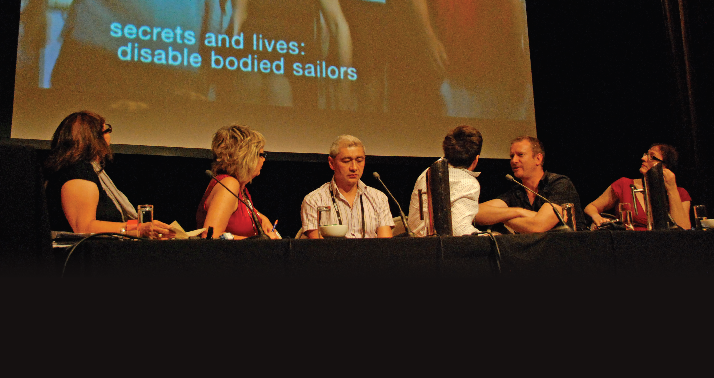Australian International Documentary Conference: Networking in a fragmented world
 AIDC is evolving from an annual conference to a year-round networking powerhouse. César Albarrán Torres spoke with director Joost den Hartog about this transformation and the state of affairs in the factual content industry.
AIDC is evolving from an annual conference to a year-round networking powerhouse. César Albarrán Torres spoke with director Joost den Hartog about this transformation and the state of affairs in the factual content industry.
There is a word that has been in vogue during recent years in all sorts of business environments: networking. Propelled by the rise of the mighty internet and the breaking-down of spatial and temporal barriers, the factual content industry has jumped into the networking wagon by inciting global partnerships and co-productions. But there’s a catch: networking is an ongoing process, and industry conferences like AIDC need to provide constant collaboration channels and opportunities. Collaborative efforts might dissolve if they are restricted to once-a-year events.
Conference director Joost den Hartog is fully aware of this: “We started up as a traditional event organisation, with a four-days-a-year lifespan. Now we are an all-year-round service organisation, and our core elements are networking, knowledge-sharing, socialising and providing marketing opportunities.”
Den Hartog is also certain that the internet is the digital glue that holds this network together: “We have taken all these things online, on a platform we built in which we provide services exclusively through the web: the DocExchange community (docexchange.org.au) and the content viewing platform Screening Room (screeningroom.org.au). By doing that, we can continue delivering our core
services year-round. In addition, we are constantly working on strategic partnerships nationally and internationally to provide value for our constituency.
A key player in the factual content industry, Den Hartog has identified the trends that have shaped the industry since the last edition of AIDC: “There is an increase in the scale of production companies, and a division is emerging between documentary and factual television companies.”
In the television realm, Den Hartog foresees a fragmentation of traditional outlets, which might be a catch-22 for filmmakers: “Multi-channelling is in full swing, and that has wide implications for content and type of content. On one end, the landscape is clearer to producers, because channel flavours are associated with brands, and with brands comes money. Potentially, you can shape your work better to the requirements of the channel. But at the same time, it has become more fragmented: the budget is spread out over more channels.”
FROM WORDS TO ACTION
After a few years in which the doco industry suffered from the backlash of the world’s economic tribulations, Den Hartog director is optimistic about the immediate future of the industry: “We are coming out of the scare of the financial crisis. There is more optimism and more eagerness to invest with the broadcasters.”
And just how has AIDC responded to this optimism?
“This year we are introducing a new scheme called P2P: Co-Create. It mainly aims for the bigger television production companies; it was established in association with the Screen Producers Association of Australia in response to the growing demand for local production companies to engage with a global market. For the first time, we’re offering a productive scheme for visitors and producers”.
To create P2P, AIDC has partnered with local production companies such as 360 Degree Films, Electric Pictures, December Films and Quail TV, and international firms from Malaysia, New Zealand and Canada. The selection criteria? Their business operation had to be able to facilitate bigger or international productions – as opposed to a one or two person operation working on one-off projects.
International co-productions are one of the main raisons d’être for AIDC. As such, it is important to identify what are the biggest trends among Australian producers and their global partners.
“Our traditional market is still the UK and Europe and to a certain extent the US, but the latter is harder because the funding system is not very compatible to a traditional co-production. But Asia is increasingly important; there is a good co-production treaty with Singapore and one with China – which unfortunately is only for film, as a television treaty hasn’t been signed yet. Other treaties that are close to completion are with Korea and Malaysia; we have a Malaysian delegation attending this year.”
Den Hartog offers an enthusiastic endnote before this year’s AIDC: “Australia is a great place to partner-up!”
AIDC, March 1-4 at the Hilton Adelaide.



